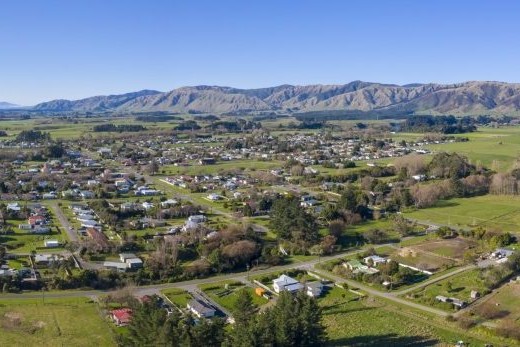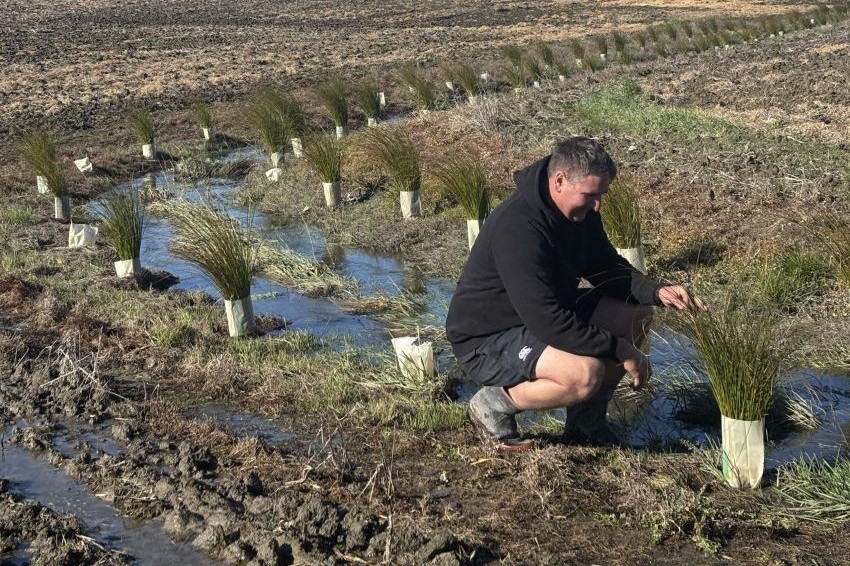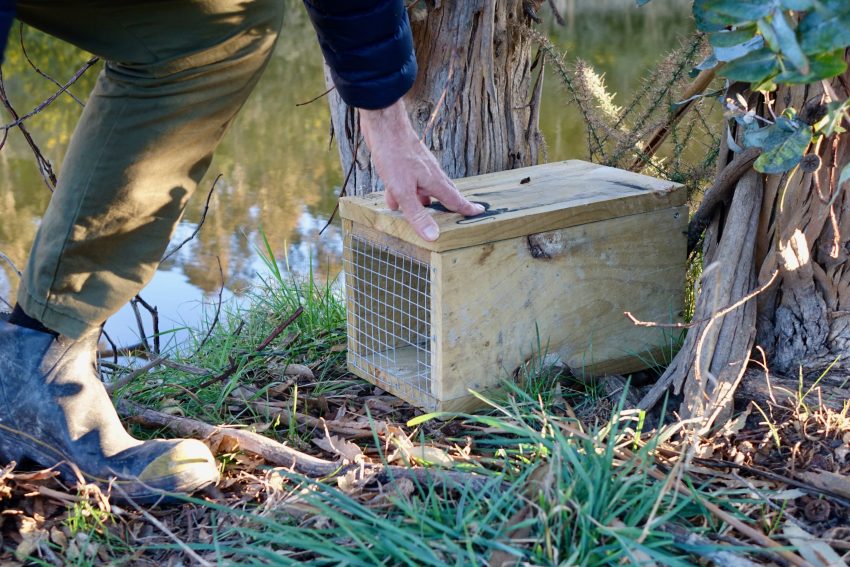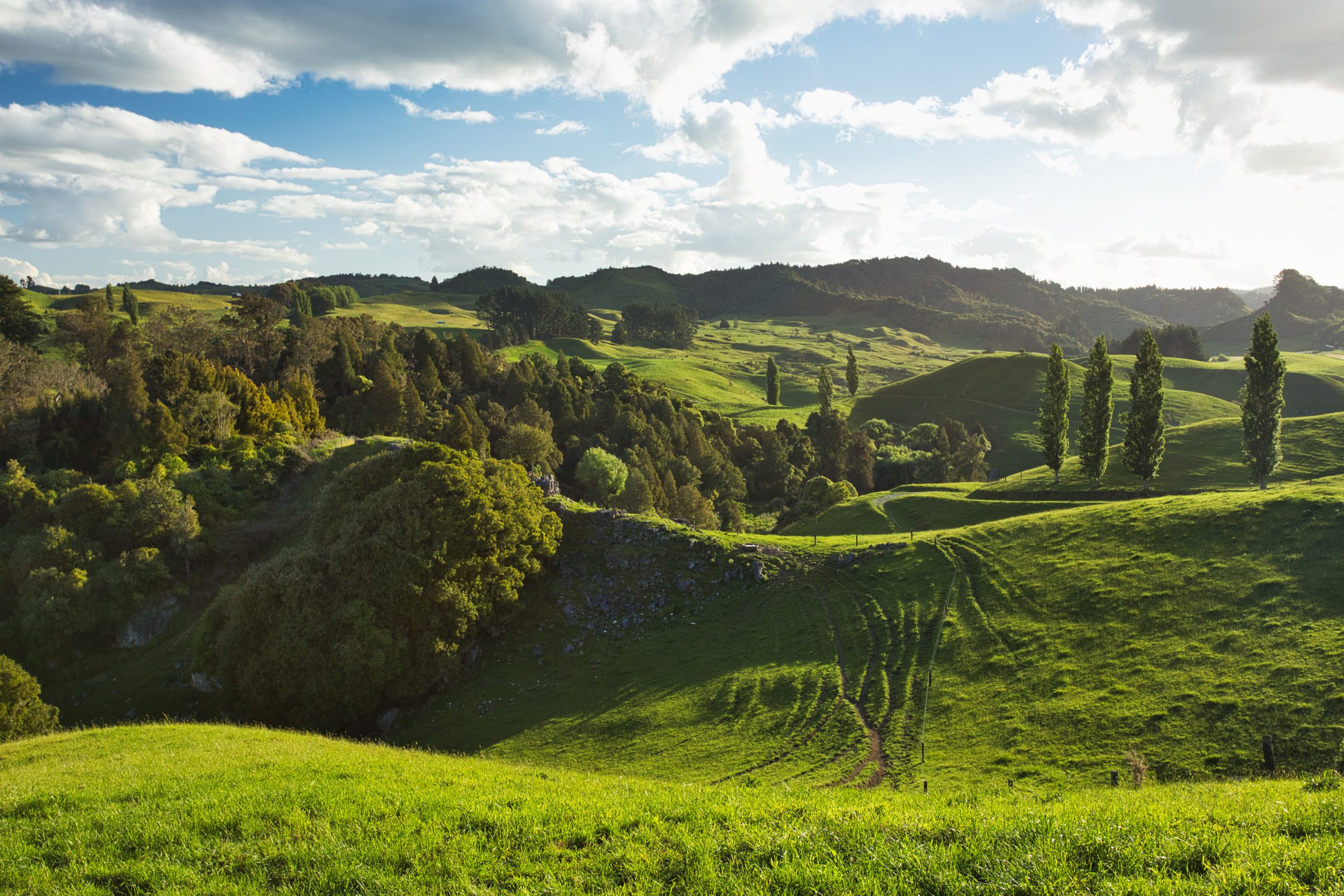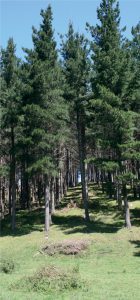 The opportunity to change land use with tree planting needs to be carefully weighed, Simon Glennie writes.
The opportunity to change land use with tree planting needs to be carefully weighed, Simon Glennie writes.
Recently, there has been more interest in trees onfarm, whether it be high log prices, or manuka for honey or even farming for carbon credits.
The question of where to plant trees has long been debated and for many it has come down to a preference as much as a financial decision. Often the difficulty is weighing up the relative returns of an annual livestock system with a 30-year pine forest rotation and the uncertainties with both.
Farmers are also aware of the high proportional contribution of agriculture on New Zealand’s balance sheet for CO2 emissions.
While not generally offended by belching livestock, there is a nagging thought that at some point we may be asked to stump up for these CO2 heavy emissions. Should this be the case, farmers are facing serious land use questions that are being influenced already by the ability to trade carbon and receive grants to plant trees.
The New Zealand Emissions trading Scheme is a government tool for reducing greenhouse gas emissions. The premise has been to measure the emissions, encouraging forest plantings by allowing eligible foresters to earn NZ emission units as their trees grow and absorb carbon dioxide. One emission unit represents one metric tonne of carbon dioxide.
Carbon credits have created a cashflow throughout the 30-year rotation of radiata, a stark contrast to spending money up front and waiting 30 years for a return. In order to see the relative merits of trees and sheep, we have followed the cash accounting annually for the interest on borrowed money and equally some small reward for cash in hand.
Obviously, there is no crystal ball when it comes to pricing so we have outlined the assumptions made for you to debate. Due care needs to be taken in assuring roading and trucking costs don’t erode the net return at harvest.
- Nett wood return $40,000.00
- Establishment $/ha $2000.00
- Combined pruning $1700.00
- Risk free C/ha $200
- Carbon $/t $25.00
- Area (ha) 1
- Interest rate 6%
- Credit rate 2%
The assumptions made around carbon include all credits claimed based on the Otago carbon tables and then surrendered on harvest at the same $25/tonne. What we can then ask is what would the annual net cash output from a livestock use need to be to generate the same dollar figure in your pocket after 30 years.
The result was $1295/hectare of nett revenue to be equal and the tree investment becoming cash positive after 15 years through carbon credits. If we take away the revenue from carbon and see what the pure forestry value is, the equivalent is $667/ha annually. Conversely, the situation where tree value is nil and only carbon is considered, the equivalent becomes $138/ha/yr.
Annual range accumulator/ha:
- Log + carbon $1295.00
- Log only $667.00
- Carbon only* $138.00
*The Carbon only option is somewhat misleading and needs explanation. The assumption is that all but 200 units are surrendered at “harvest” after having been claimed during the 30 years of the model. Carbon tables suggest you could continue to capture carbon for some time longer.
If none of the units were surrendered at 30yrs the annual equivalent would be $546/Ha (based on Otago Carbon tables which are a mid range option). At some stage in the future, there is no further accumulation as decay equals growth and there becomes a potential liability as the forest dies.
In effect, the analysis above serves to highlight the areas of risk with the land use decision. You would need a good degree of confidence in the final net return from the logs. The carbon price is also important and we must remember that our workings have not imposed any cost for the carbon emitted from the livestock over the 30 years. However, it is also apparent that the case for trees, depending on harvest return, is currently reasonably strong when alternative land use options are considered. Whether farmers are advocates of the 1 billion tree policy or not, the opportunity to change land use needs to be carefully weighd.
Simon Glennie is a farm consultant with Abacus Bio

